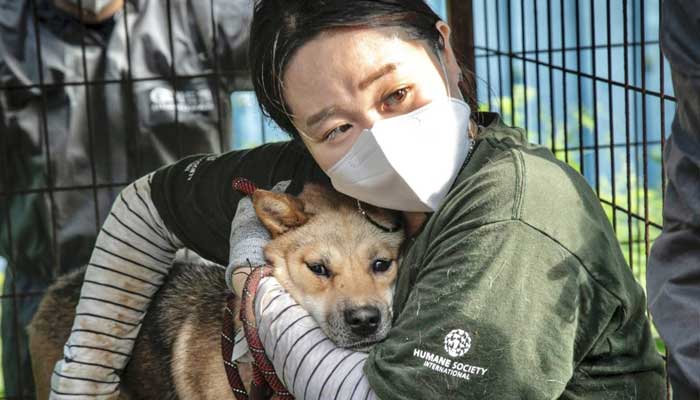
South Korea has implemented a nationwide ban on the sale of dog meat for consumption.
Passed in January 2024, the key legislation requires farmers to shut down their operations by February 2027 and sell their remaining animals.
However, many argue that this is not sufficient time to completely wind down the industry, which has provided livelihoods for generations.
Supporters of the ban, including animal rights advocates, have highlighted issues around the rule, particularly the challenge of rehoming dogs.
In the midst of the implication period, dog farmers are finding themselves with hundreds of virtually unsellable animals and no means to put food on the table.
Chun Myung-Sun, director of the Office of Veterinary Medical Education at Seoul National University, noting that eating dog is not the same as eating other meats.
According to Humane World for Animals, the meat is also consumed in countries such as China, Indonesia, Laos, Vietnam, Myanmar, parts of northeastern India and several countries in Africa.
But while consumption rates have fluctuated throughout Korea's history, it has become increasingly taboo in South Korea in recent years.
Since the ban was announced, 623 of South Korea's 1,537 dog farms have been closed.
South Korea's dog meat consumption began due to a mix of historical, medicinal, and economic reasons, especially during the Korean War (1950-1953), when the country had limited access to meat.
However, the consumption has drastically declined and is now on its way out due to shifting cultural values and legal reforms.












